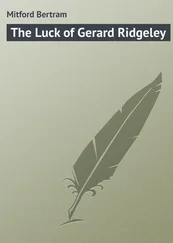Bertram Mitford - The Red Derelict
Здесь есть возможность читать онлайн «Bertram Mitford - The Red Derelict» — ознакомительный отрывок электронной книги совершенно бесплатно, а после прочтения отрывка купить полную версию. В некоторых случаях можно слушать аудио, скачать через торрент в формате fb2 и присутствует краткое содержание. Жанр: foreign_prose, на английском языке. Описание произведения, (предисловие) а так же отзывы посетителей доступны на портале библиотеки ЛибКат.
- Название:The Red Derelict
- Автор:
- Жанр:
- Год:неизвестен
- ISBN:нет данных
- Рейтинг книги:5 / 5. Голосов: 1
-
Избранное:Добавить в избранное
- Отзывы:
-
Ваша оценка:
- 100
- 1
- 2
- 3
- 4
- 5
The Red Derelict: краткое содержание, описание и аннотация
Предлагаем к чтению аннотацию, описание, краткое содержание или предисловие (зависит от того, что написал сам автор книги «The Red Derelict»). Если вы не нашли необходимую информацию о книге — напишите в комментариях, мы постараемся отыскать её.
The Red Derelict — читать онлайн ознакомительный отрывок
Ниже представлен текст книги, разбитый по страницам. Система сохранения места последней прочитанной страницы, позволяет с удобством читать онлайн бесплатно книгу «The Red Derelict», без необходимости каждый раз заново искать на чём Вы остановились. Поставьте закладку, и сможете в любой момент перейти на страницу, на которой закончили чтение.
Интервал:
Закладка:
“We pulled that off well, Delia,” said Clytie as they returned from seeing their visitor to the gate. “He’s gone away thinking no small beer of us. He had heard all sorts of beastly things said about us, and came to see if they were true, and has come to the conclusion they are not.”
“Why do you think that?”
Clytie smiled pityingly.
“My dear child, I never saw the man yet I couldn’t read like a book, even in matters far more complicated than that, and not often a woman. Never mind. I’ll back you up all I know how if you’ll go on playing up to me as you did just now. Oh, good Lord! there’s the old man, and – he’s ‘fresh.’”
For a volley of raucous profanity had swamped her last words, and over the top of the front gate a face was visible – a very red face indeed, surmounted by a hat awry. The profanity was evoked by its utterer’s natural inability to open a locked gate by the simple process of pushing and battering against the same. Delia looked troubled.
“Do you think he saw him?” she said. “He’s only just this second gone out.”
“Depends which way the old man came. But ‘he’, if you remember, said he’d never set eyes on him.”
“Yes; but that’s not to say he never will. And then, on top of that recognition, he’ll be in no lively hurry to wend our way again.”
“Leave all that to the future, and chance,” returned Clytie. “Oh, bother! The old man’s blaring away like a calf that has lost its cow. We’d better let him in sharp or he’ll draw a crowd.”
The two walked leisurely back to the gate, against which their parent was raining kicks – and curses.
“Go easy, dad,” said Clytie. “How the deuce can a fellow open the gate from this side what time you’re banging it in from that? There! Now, come along.”
“How the deuce? Look here, you minx, that’s nice sort of feminine language to use to your father, isn’t it? Or to anyone,” he repeated as he walked stiffly and with an ominous swaying gait up the garden path.
“And that’s nice sort of masculine language to use to your daughters – and the gate, and things in general, as you were doing just now, isn’t it?” laughed Clytie serenely. “Unless you can plead, with the proverbial Scotchman, that you were only swearing ‘at large.’”
“Ha-ha! What a girl it is!” chuckled the old man, with the suspicion of a hiccough. “You ought to go on the stage, dear; you’d make your fortune.”
“No doubt. But I’ve got to get there first. I say, dad, who d’you think has just gone?”
“Dunno, don’t care; only that I’m devilish glad they have gone. Now I can have a ‘peg.’”
“No, you can’t.”
“Can’t! What the devil do you mean, Clytie?”
“What I say. You’ve had enough of a ‘peg’ to last you till to-night. What you want now is some strong coffee, so come right in and have it.”
He grumbled something about not being master in his own house, and a good deal more. But in the end he submitted; for Clytie was the one who ruled him, and, to do her justice, ruled him tactfully and for his good, so far as it lay within her power; whereas Delia was somewhat intolerant of this phase of her parent’s weakness, and adopted towards it a scornful attitude.
“Well, dad, you haven’t guessed who has just gone,” went on Clytie.
“How the blazes should I know – or care?” snapped the old man. “Some spark of yours, I suppose.”
“Haven’t got any just now. Everyone seems ‘off’ me. Delia’s putting my nose clean out of joint,” was the placid reply. “Well, what d’you think of Wagram?”
“What?” roared old Calmour, who was just in the quarrelsome stage and was glad of an object whereon to vent it. “He? If I’d been here I’d have kicked him out of the house.”
“No, you wouldn’t,” said Delia quickly. “You couldn’t, to begin with.”
“What the – what the – ?” And as the old man, purple with rage, let off a string of unstudied profanity, both girls put their fingers to their ears.
“Let’s know when you’ve blown off steam, dad,” said Clytie, “then we’ll listen to you again.”
At last old Calmour, seeing no fun in cursing without an audience, and being, moreover, quite blown, desisted, the resumed thread of his wrath taking the shape of rumbling growls. He would teach that blanked, stuck-up jackanapes – keeping wild beasts to attack his girls on a public road. He didn’t care this or that for any blanked Wagram, even if they owned half the county. He’d knock a thousand pounds damages out of them for that little job. He’d put it in his solicitors’ hands at once, he would, by so and so.
“You’ll do nothing of the sort, dad,” said Clytie. “We’ve got a much better plan than that.”
“Oh, you have, have you? And what is it?”
“Not going to tell you – not yet. Leave it to me, and – keep quiet.”
Again he grumbled and swore, but Clytie’s equanimity was proof against such little amenities. She was not going to let her father into their scheme only to have him giving it away in his cups, in this or that saloon bar about the place, not she. At last, drowsy with the combined warmth of the day, his own vehemence, and, incidentally, the liquor he had imbibed, he subsided on a sofa, and snored.
He did not look lovely as he lay there, open-mouthed and breathing stertorously, his grey hair all touzled about his red and bloated face. It was hard to realise that he could be the father of these two very attractive girls, yet in his younger days he had been a good-looking man enough. But the effects of poverty and domestic worry, and drink taken to drown the care inseparable therefrom, had made him – well, what he was.
Chapter Six.
A Solemnity
The chapel belonging to Hilversea Court stood a little back from the main avenue, and was so embowered in fine old trees as to be invisible in summer-time from the main road which skirted the park wall on the outside.
From the west front of it, at right angles to the main avenue, there opened out a second avenue, of a good width, and shaded by rows of tall limes extending some four hundred yards, and terminating in a sculptured stone Calvary of sufficient size and proportions as to be plainly discernible even at a distance. This avenue was known as the Priest’s Walk.
The origin of the name was by no means clear. Some said it was because successive family chaplains for generations had been in the habit of pacing this avenue while saying their office, or for purposes of combining exercise with meditation; others that tradition had it that in the reign of Elizabeth a refugee priest was arrested there, and being, of course, subsequently martyred, was said to revisit the scene at midnight on the anniversary of his martyrdom, and pace up and down – incidentally, headless. None, however, could say for certain. But the name had stuck – had been there, indeed, beyond the memory of the grandfather of the oldest inhabitant.
On this cloudless June afternoon, however, there was nothing reminiscent of tragedy or special manifestation. Quite a throng of people lined the avenue on either side, quiet and expectant, talking but little, and then in subdued tones. Overhead, at intervals, drapings of crimson and white and gold spanned the avenue, as though for the passage of royalty; for it was the octave day of the Feast of Corpus Christi, and the procession customary on that solemnity was about to take place.
The occasion was a gala one at Hilversea. As far as possible the day was observed on the estate as a general holiday, and so great was the popularity of the old Squire and his son that even those among their tenants who differed with them in creed would willingly meet their wishes in this respect. Moreover, there was an abundant spread laid out in several large marquees, to which all belonging to the place were welcome, whether they attended the religious observances or not; and this held good of a sprinkling of people from outside, even though drawn thither by no more exalted a motive than that of witnessing a picturesque sight.
Читать дальшеИнтервал:
Закладка:
Похожие книги на «The Red Derelict»
Представляем Вашему вниманию похожие книги на «The Red Derelict» списком для выбора. Мы отобрали схожую по названию и смыслу литературу в надежде предоставить читателям больше вариантов отыскать новые, интересные, ещё непрочитанные произведения.
Обсуждение, отзывы о книге «The Red Derelict» и просто собственные мнения читателей. Оставьте ваши комментарии, напишите, что Вы думаете о произведении, его смысле или главных героях. Укажите что конкретно понравилось, а что нет, и почему Вы так считаете.












